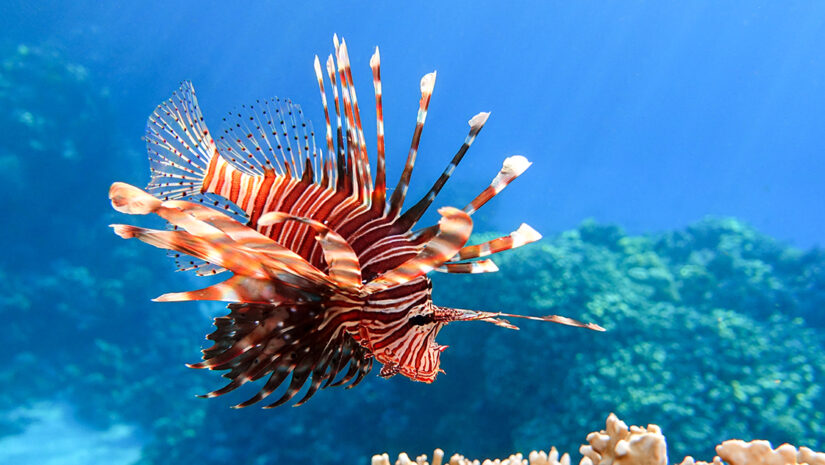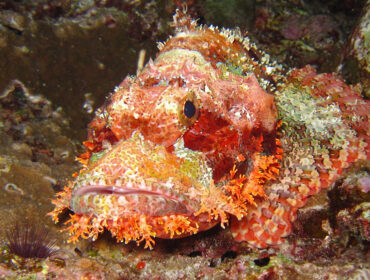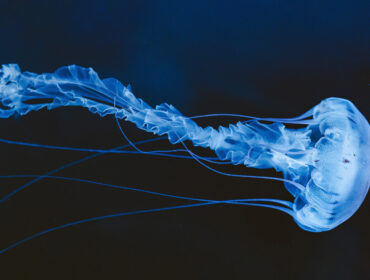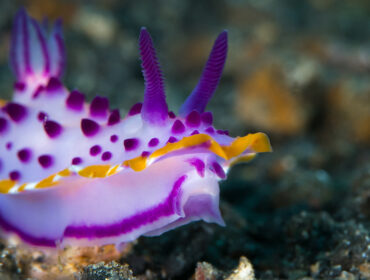Lionfish is becoming an epidemic in the Caribbean and parts of the tropical Atlantic, with sightings moving ever further up the eastern shore of the US. There is a complex web of issues that make the lionfish a considerable threat to the reefs and marine life of regions in which they do not naturally inhabit, including a propensity to eat anything in sight, even fish more than twice their size, and a quick rate of reproduction and growth, allowing them to take over and decimate a ref ecosystem before anyone knew what was happening. For these reasons, many countries and states in the affected areas (primarily Florida) have declared open season on any lionfish, with little or no regulation on “seasons” or catch sizes.
However, there is a silver lining to this seeming carnage: lionfish is a delicate and impressive fish to serve for virtually any meal of the day. One of the trickiest parts about preparing lionfish is deboning the fish and removing the venomous spines without spearing yourself — a feat which is rather easy with a steady hand. Once you’ve removed all the bones, this fish can be used in various white fish recipes.
Lionfish Tacos
Fish tacos are one of the most healthful, easy ways to prepare lionfish. First, season the fish by placing it in a bowl and sprinkling lime, garlic powder, cumin, chili powder, and a tablespoon of olive oil. Let the fish marinate for 15 minutes. In a large skillet, sauté the fish until it becomes opaque and firm to the touch. You can cook it on a grill pan for a nice charred flavor. Serve over warm tortillas. Garnish with shredded cabbage, pico de Gallo, and sour cream. Lionfish tacos taste great with a cold beer, crisp sauvignon blanc, or a refreshing club soda.
Lionfish and Chips
This recipe one of the easiest ways to prepare lionfish, you could make it right down at the dock, and cook it on a hot plate. Place two lionfish fillets in a paper sandwich bag, and add one cup cornmeal and one-half cup flour—season with salt, pepper, and Cajun seasoning. Shake the bag and remove the fillets. Heat two cups of peanut oil in a deep cast iron pan or Dutch oven. Fry the fillets for a few minutes on each side until the fish turns golden brown. To make chips, cut two potatoes into long strips. Line them on a baking sheet and pop them into a 350F oven for 30 minutes. Season with salt and pepper, and enjoy!
Lionfish Ceviche
Cut the lionfish fillets into chunks and place them in a medium-sized bowl. Squeeze eight limes over the fish. Let the fish marinade in the lime juice for several hours, up to one day. Chop one tomato, one-half of an onion, and one jalapeno. Add a handful of chopped cilantro and one tablespoon of olive oil to the vegetables. Drain the excess lime juice from the fish and toss with the vegetable mixture.
How to Cook the Lionfish
Pan Fried
Season a whole lionfish with salt and pepper. Drizzle your preferred cooking oil into a heated pan over medium high heat and cook the fish until browned on both sides. Enjoy with rice and steamed vegetables.
Steamed
Wrap a whole lionfish in banana leaves or parchment paper and steam it with an array of fresh vegetables. Because the tender white flesh of the lionfish cooks quickly, you’ll be able to cook both together for the same length of time. Season with salt, pepper, and lemon juice when finished cooking.
Deep Fried
Yet another approach to preparing whole lionfish is deep drying. Dredge the fish in a mixture of flour, salt, and pepper, followed by a brief dip in a mixture of beaten egg and your favorite beer, just long enough to coat the entire fish. Carefully place into a deep fryer basket and plunge into your pre-heated oil. The fish is done cooking when it floats and there are few to no bubbles. Serve with roasted vegetables or mashed potatoes for a hearty meal.
Fried Fillets
This way to prepare lionfish uses the same basic recipe as the deep fried whole fish, but with cut fillets instead. You may want a heavier breading layer, and you can even use panko crumbs for a crispier texture. Serve with tartar sauce or malt vinegar and potato fries for a version of fish and chips that actually helps the oceans instead of depleting them.





